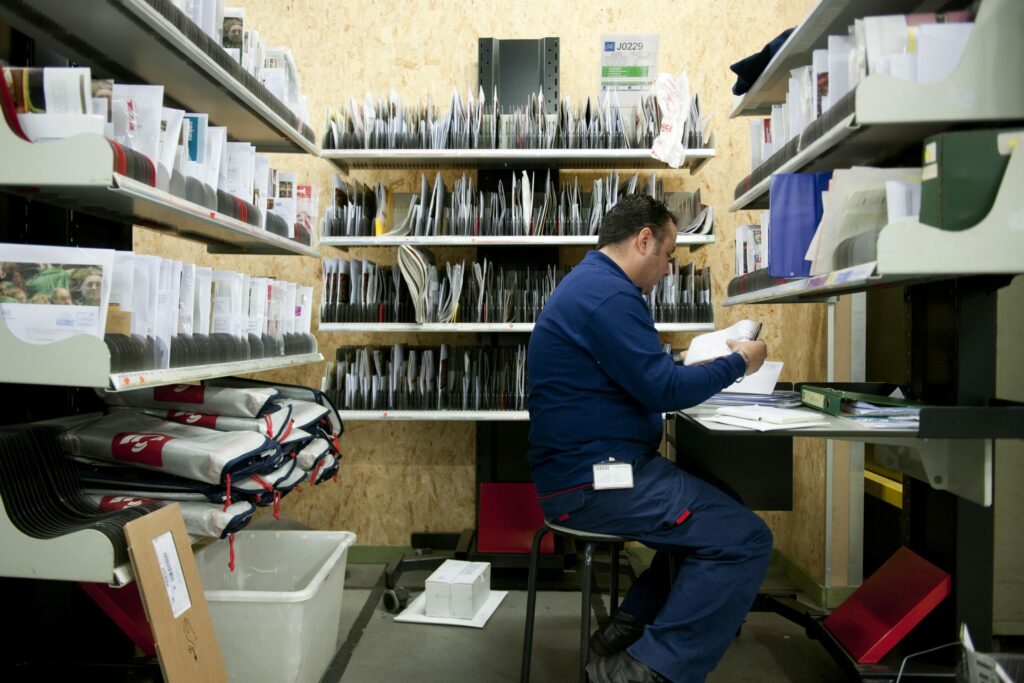Uncover the intricacies of Belgium's unique unemployment benefits system;
✔ Belgium only EU country with unlimited unemployment benefit duration
✔ Eight conditions must be met for benefit eligibility
✔ Belgium's spending on unemployment represents 2.8% of GDP
Belgium is only EU country with unlimited unemployment benefits over time

Belgium is the only country in the European Union that does not limit these benefits over time – as the new Voor U political party states in its election programme.
However, similar systems in other countries mean that Belgium is not as alone as it seems.
The 'Voor U' party states in its election programme that Belgium is "the only EU country where unemployment is unlimited in time." One of its candidates, Ivan Sabbe (heading the list in West Flanders) recently repeated this claim at a student election debate in Leuven.
Unemployment benefits are indeed unlimited in time in Belgium, amounting to 65% of the last salary (within an upper and a lower limit) and decreasing progressively over time. The sum also depends on the individual's family situation and employment history (mainly their last salary). An overview of the current amounts is available on the website of the Office National de l'emploi (Onem).
After 48 months (four years), a fixed minimum amount applies, meaning the amount depends solely on the individual's family situation from that point, no longer on their last salary.
'Pillarisation'
Rudy Aernoudt, Professor of Finance at Ghent University referred to an OECD report on the unemployment benefit system in Belgium that shows that the country is the only one not to limit unemployment benefits over time. At least if other forms of assistance are excluded.
"It is linked to the so-called 'pillarisation' of Belgium," economist Ive Marx (UAntwerpen) told RTBF, referring to the vertical separation of citizens into groups by religion and associated political beliefs. "The open-ended nature of unemployment benefit has developed historically. The trade unions believe that no limits are important."
On the European Commission's website, an overview of benefit measures for all Member States can be found. The time limits range from 90 days in Hungary to three years in Denmark. Only Belgium has no expiry date.

A VDAB information leaflet for jobseekers. Credit: Belga
In other countries, other forms of assistance are available once the unemployment benefit has expired. The amounts of this assistance are usually lower than the initial benefits, and only jobseekers with limited assets are entitled to this benefit.
In countries such as the Netherlands, Austria and Ireland, this allowance is unlimited in time. In Austria, jobseekers receive emergency assistance in certain circumstances when they reach the limit of unemployment benefit. In Ireland, the unlimited unemployment allowance replaces the higher but time-limited jobseeker's benefit.
What are the conditions to get unemployment benefits in Belgium?
In practice, however, unemployment benefit is not unlimited in Belgium: eight conditions need to be satisfied before being entitled to unemployment benefit. People who no longer meet these conditions lose their entitlement to the benefits.
- You must have worked for at least a certain number of days over a period of between 21 and 42 months, depending on your age,
- You must not have caused the loss of your job,
- You must be available for work (for example, you are not unable to work due to illness – in which case you receive different benefits),
- You are registered as a jobseeker,
- You are prepared to accept suitable employment or training when offered,
- You are actively looking for a job and are taking part in the counselling and training measures on offer,
- You are under the retirement age of 65,
- You live in Belgium.
According to Onem figures, there are on average around 296,000 jobseekers entitled to benefit this year, including around 125,000 in Wallonia (which includes the German-speaking community), 110,000 in Flanders and 61,000 in Brussels – the lowest number in 40 years.
How are things in neighbouring countries?
The system in Belgium's neighbouring countries is different, explained Marx. "In the Netherlands, for example, they are more generous with the newly unemployed. But this generosity is limited in time."
The newly unemployed in the Netherlands receive 75% of their last salary. The minimum duration of unemployment benefit is three months. In certain cases, it can be extended to a maximum of 24 months. Unemployed people whose income is insufficient to meet their needs can then turn to general assistance, which lasts for an unlimited period.
In France, the amount of the benefit is between 57% and 75% of the last salary, for a period of minimum six and maximum 18 months (up to 27 months for the over-55s). Here too, jobseekers can claim the Revenu de Solidarité Active (RSA) when they are no longer entitled to unemployment benefit. In Germany and Luxembourg, the duration is 12 months.
Related News
- Difference of minimum €500 between working and living off benefits in Belgium
- Employment rate among migrants reaches record high
- Unemployment in Belgium at 40-year low
While it is often assumed that the unlimited nature of Belgium's unemployment benefits also means that the country's spending in this area is higher than in other countries, this is not necessarily true.
Figures from the European statistics office Eurostat show that in countries such as Austria, Spain and France, spending on unemployment represents a higher proportion of gross domestic product. Still, Belgium (2.8% of GDP) is well above the European average (2.2% of GDP).
